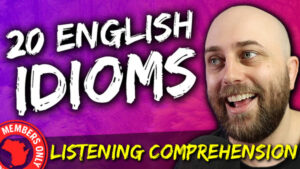
AE 1005
Can You Understand This Aussie Guy? | Australian Accent Lesson
Learn Australian English in this
Advanced English Pronunciation Lesson

In today's episode...
Here’s another excellent way for you to learn Australian English – the news!
In 2016, this live interview came up on The TODAY show, a morning talk show on the Nine Network.
Since then, it has gone viral due to how this Aussie bloke told a reporter about how a wayward driver ruined his mate’s mom’s fish and chips shop.
Man, their conversation has a lot going on!
Let’s learn what Daniel McConnell says in the interview, which has been dubbed The Aussiest Interview Ever!
Improve your listening skills today – listen, play, & pause this episode – and start speaking like a native English speaker!

Watch & listen to the convo!
Listen to today's episode!
This is the FREE podcast player. You can fast-forward and rewind easily as well as slow down or speed up the audio to suit your level.
If you’d like to use the Premium Podcast Player as well as get the downloadable transcripts, audio files, and videos for episodes, you can get instant access by joining the Premium Podcast membership here.
Get more out of every episode!

Premium Podcast members get access to...
- All 900+ podcast episodes including member-only episodes
- Member-only episode video lessons
- Downloadable transcript PDFs & audio files for every episode

Recent Episodes:

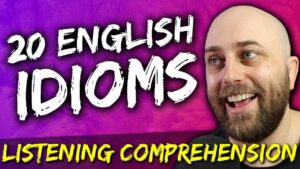
AE 1359 – 20 English Idioms To Transcribe
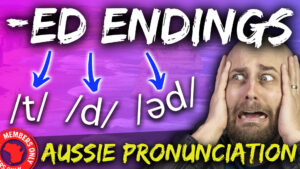
AE 1358 – How to Pronounce -ED Endings in Australian English [Members Only]
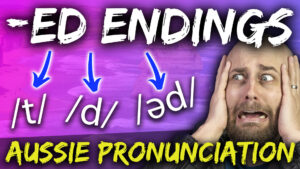
AE 1357 – How to Pronounce -ED Endings in Australian English

AE 1356 – Will AI Save Us Or Replace Us?
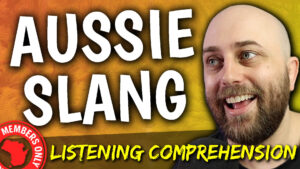
AE 1355 – 20 Aussie Slang Sentences Explained [Members Only]
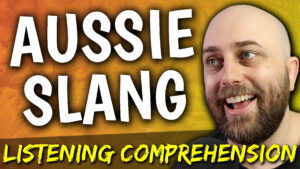
AE 1354 – 20 Aussie Slang Sentences to Transcribe

AE 1353 – The Goss: How the Australian Property Market Got Cooked!
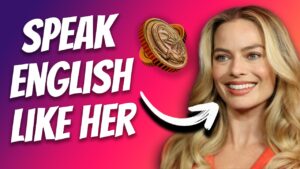
AE 1352 – Pete’s 2c: How Can I Improve My Aussie Accent?

Share

Join my 5-Day FREE English Course!
Complete this 5-day course and learn how to study effectively with podcasts in order to level up your English quickly whilst having fun!


Want to improve a specific area of your English quickly and enjoyably?
Check out my series of Aussie English Courses.
English pronunciation, use of phrasal verbs, spoken English, and listening skills!

Have you got the Aussie English app?
Listen to all your favourite episodes of the Aussie English Podcast on the official AE app.
Download it for FREE below!



Want to improve a specific area of your English quickly and enjoyably?
Check out my series of Aussie English Courses.
English pronunciation, use of phrasal verbs, spoken English, and listening skills!
Leave a comment below & practice your English!






Responses
Daniel: “Yeah, but I had nothing on but me, jocks”. Should be Yeah, but I had nothing on BAR me jocks. Am I corrected, Pete?
Yep, Well spotted. I’ve corrected it and it should update now 😀